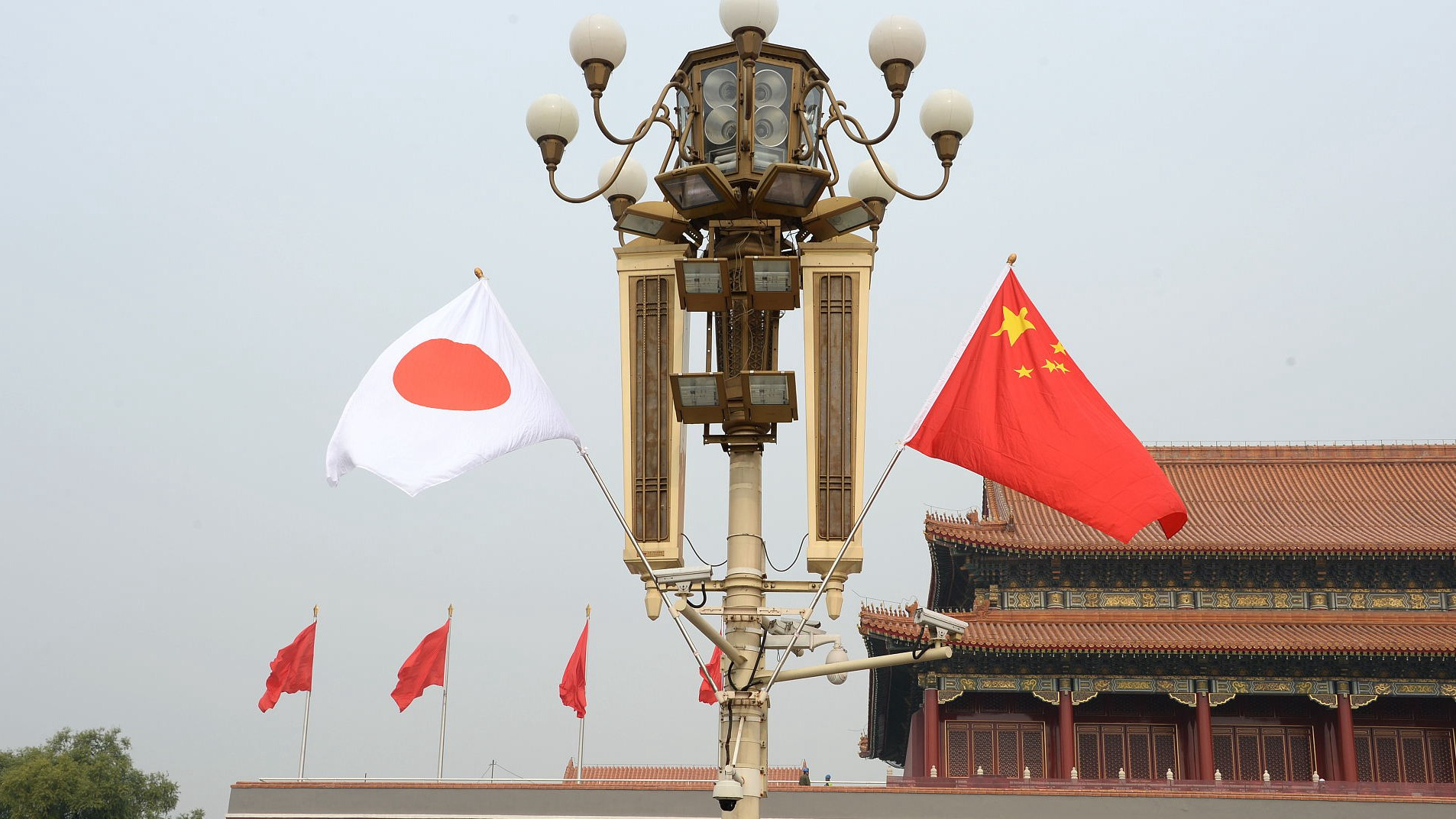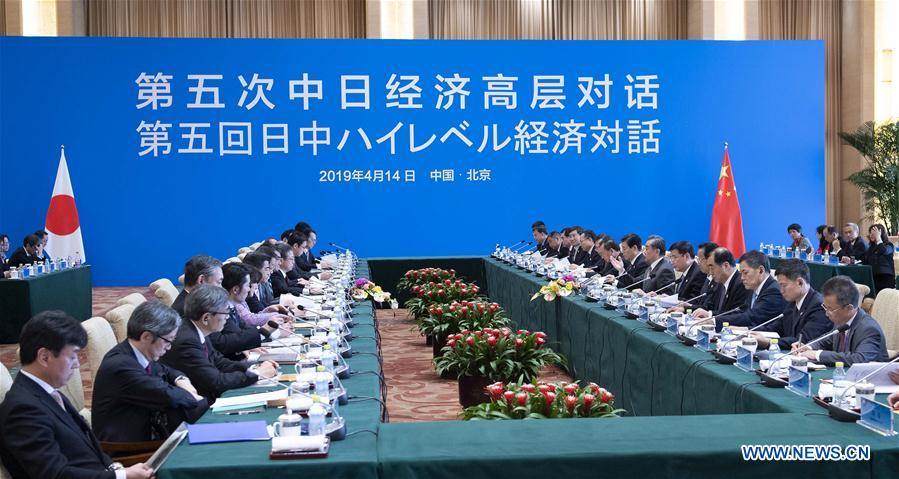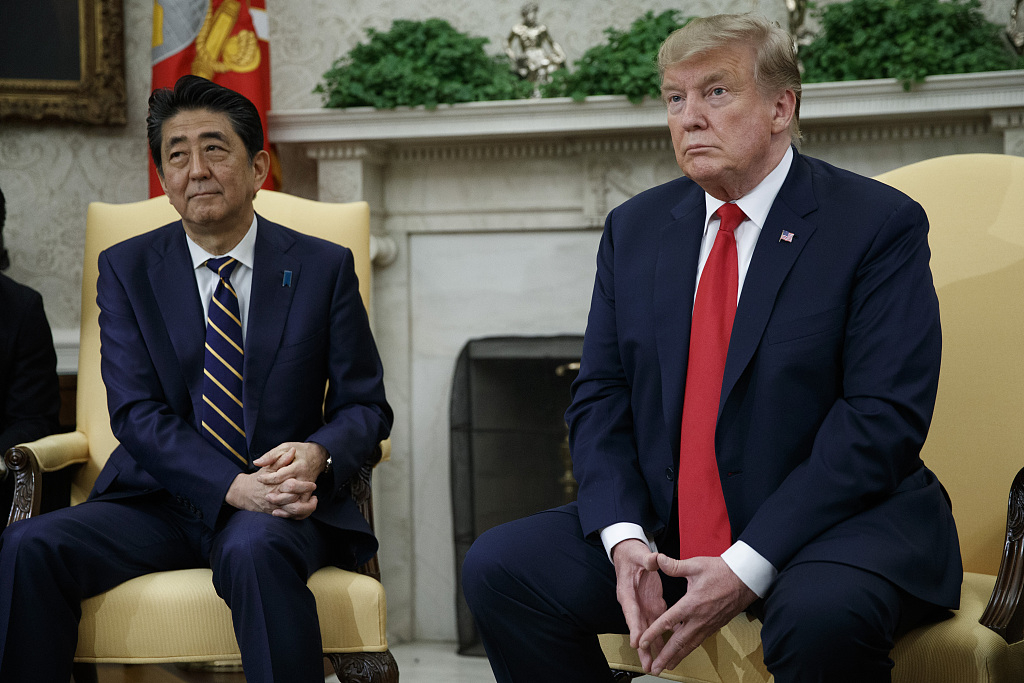

Editor’s note: Zhou Yongsheng is a professor in the Institute of International Relations at China Foreign Affairs University. The article reflects the author’s opinion, and not necessarily the views of CGTN.
At the invitation of Japan’s Prime Minister Shinzo Abe, Chinese President Xi Jinping will attend the G20 Summit in Osaka on June 28 and have a bilateral meeting with Abe. In the meantime, it has also been confirmed that President Xi will have an “extended” meeting with his U.S. counterpart Donald Trump during the summit, which brought new hopes to a trade war truce between the world’s largest two economies.
Like it or not, trade is inevitably an important subject in the bilateral meetings between the world leaders, as China is not alone trying to negotiate a trade deal with the U.S. Trump is also pushing Abe to reach a U.S.-Japan trade deal that could further open up the Japanese market and reduce the trade imbalance between the two countries. Against this background of two trade stand-offs, it might be interesting to look at the bilateral relations between China and Japan and how would it evolve in the future.
Considering that both China and Japan are being bullied by the U.S. given its dominant economic and military position, it is natural to think that two neighbors would speed up their economic cooperation. However, the situation might be more complicated.

Chinese State Councilor and Foreign Minister Wang Yi co-chairs the fifth high-level economic dialogue between China and Japan with visiting Japanese Foreign Minister Taro Kono in Beijing, April 14, 2019. /Xinhua Photo
It is true that both countries dislike how the U.S. is getting away with its hegemonic power. They are on the same page to agree that the trade deficit the U.S. has with China and Japan is not a one-sided issue. It is the result of a structural global trade system of which America is a part of itself whereby the U.S. should focus more on its domestic economy rather than picking a trade fight with other countries. Under these circumstances, China and Japan hope to strengthen their economic ties in order to stabilize their external market and they are also on the same front on promoting the global free trade system.
But in the meantime, just as the U.S., Japan also dislikes China’s economic structure. Some Japanese companies in China worry that U.S. tariffs have hurt their own interests, but they would also like to see the trade war further open up the Chinese market from which they can also benefit. Like the U.S., Japan also sees China’s trade policies as “problematic” and is counting on the strongest power, the U.S. to change it.
Japan envies China's strength and courage to engage in a tit-for-tat trade war with the U.S., which it dares not to. If there is really a tariff war between the two countries, Japan believes it would suffer much more than the U.S. So whatever hard stance Japan is taking during the negotiations, it is most likely that it would yield to U.S. demands in the end.

U.S. President Donald Trump, right, and Shinzo Abe, Japan's prime minister, listen during a meeting in the Oval Office of the White House in Washington, D.C., U.S., April 26, 2019. /VCG Photo
After all, compared to economic interest, the Japanese leader thinks more highly of security and the Japanese-U.S. alliance. Sacrificing some economic interest in exchange for a stronger alliance is acceptable to Japan as national security is the basic and most important factor for a country’s development. Japan still sees a rising China as a potential threat, and it can only remain safe relying on the U.S.
For example, Japan has been following U.S. ban on Huawei, although not issuing an official order. At the end of 2018, when the U.S. government started to target Huawei, Japan immediately ordered not to use Huawei’s 5G technology. In May 2019, when the U.S. officially announced its Huawei ban, Japan also withdrew Huawei’s latest P30 series products from the market. These Japanese companies would rather break the contract with Huawei to follow the U.S.’ restrictive policy. That is not to say that they are against Huawei per se, but compared to U.S. equipment and technology, they would choose the bigger slice of the cake.
Thus, against the background of the U.S. waging a global trade war, China-Japan relations have the potential to move forward to deepen economic cooperation. But the “U.S. element” is difficult to neglect considering Japan’s demand for security. In other words, it seems that it is when both Japan and the U.S. can shake off the "China-as-a-threat" prejudice can the two countries build trust and move forward.
(If you want to contribute and have specific expertise, please contact us at opinions@cgtn.com)

Copyright © 2018 CGTN. Beijing ICP prepared NO.16065310-3
Copyright © 2018 CGTN. Beijing ICP prepared NO.16065310-3